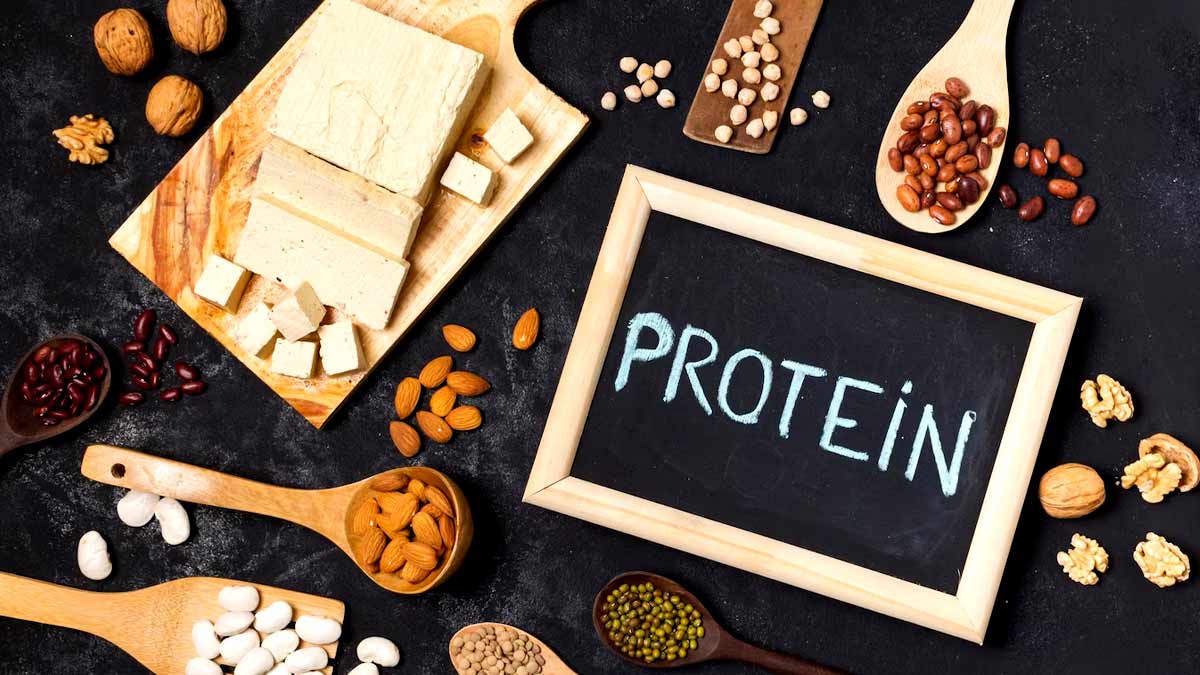
Proteins are essential macronutrients that are composed of amino acids, which serve as the building blocks of life. They play vital roles in tissue repair, enzyme function, hormone regulation, immune support, and as a source of energy when needed. Low levels of protein can therefore lead to various health issues. Speaking with the OnlyMyHealth team, Dr Paritosh Baghel, Senior Consultant-Internal Medicine, SL Raheja Hospital, Mahim-A Fortis Associate, discusses the common signs of protein deficiency and how it can be treated.
Table of Content:-
Understanding Malnutrition And Protein Deficiency

“Deficiency of proteins can cause an array of diseases," says Dr Baghel, kwashiorkor being one of them, which is seen in children due to protein energy malnutrition.
Malnutrition refers to a condition where there is an imbalance or deficiency in essential nutrients, such as proteins, carbohydrates, fats, vitamins, and minerals, in the body. It includes undernutrition (wasting, stunting, underweight), inadequate vitamins or minerals, overweight, obesity, and resulting diet-related noncommunicable diseases, according to the World Health Organization (WHO).
Also Read: Bone Pain That Worsens At Night Could Be A Sign Of Bone Cancer: Other Symptoms
"In 2014, approximately 462 million adults worldwide were underweight, while 1.9 billion were either overweight or obese," says WHO, adding, "In 2016, an estimated 155 million children under the age of 5 years were suffering from stunting, while 41 million were overweight or obese."
"Around 45% of deaths among children under 5 years of age are linked to undernutrition. These mostly occur in low- and middle-income countries. At the same time, in these same countries, rates of childhood overweight and obesity are rising," the global health organisation adds.
Common Symptoms Of Protein Deficiency

Protein deficiency can lead to a range of symptoms, including:
- Muscle wasting and weakness
- Swelling, especially in the legs and feet, due to fluid accumulation
- Feeling tired and lacking energy
- Delayed wound healing
- Thinning hair and hair loss
- Dry and flaky skin
- Reduced immune function
- Growth impairments
- Skin pigmentation
- Brittle and easily breakable nails
Also Read: Do Not Ignore Swelling In These 4 Areas; Could Be A Sign Of Fatty Liver Disease
How Low Levels Of Protein In The Body Can Cause Leg Swelling
Oedema is a condition, which occurs when there is an abnormal accumulation of fluid in the body's tissues, leading to swelling and enlargement of the affected area.
Protein deficiency can be one of the reasons behind why you have swelling, especially in the legs and feet. Protein plays a crucial role in maintaining fluid balance in the body. When protein levels are inadequate, as in the case of protein deficiency, the body's ability to regulate fluid distribution is compromised. One of the consequences of this imbalance is the development of leg swelling, also known as oedema.
A study, published by Taylor & Francis Online, has found that oedema is also caused by low amounts of human serum albumin, which are proteins in the blood that are said to contribute to the oncotic pressure in the blood vessels, meaning that which pulls fluid back into the blood vessels from the surrounding tissues, preventing excessive fluid accumulation.
Ways To Get Optimum Levels

“The various sources of proteins include plant-based food items like lentils, nuts, almonds, soya, gram, etc. and animal-based foods such as eggs, fish, meat, and milk,” says Dr Baghel.
A review published in the Journal Food & Function suggests, "The Recommended Dietary Allowance (RDA) of protein for a healthy adult with minimal physical activity is currently 0.8 g protein per kg body weight (BW) per day. To meet the functional needs such as promoting skeletal-muscle protein accretion and physical strength, dietary intake of 1.0, 1.3, and 1.6 g protein per kg BW per day is recommended for individuals with minimal, moderate, and intense physical activity, respectively. Long-term consumption of protein at 2 g per kg BW per day is safe for healthy adults, and the tolerable upper limit is 3.5 g per kg BW per day for well-adapted subjects."
"Chronic high protein intake may result in digestive, renal, and vascular abnormalities and should be avoided. The quantity and quality of protein are the determinants of its nutritional values," the academic review adds.
Conclusion
If you experience signs of protein deficiency, remember to address it and seek medical advice and guidance from a healthcare professional or registered dietitian. A balanced diet that includes sufficient protein from various sources is crucial for maintaining proper fluid balance and overall health.
Also watch this video
Read Next
Feeling Tired Or Low After Lunch? Expert Lists Tips To Prevent Blood Sugar Spikes Post-Lunch
How we keep this article up to date:
We work with experts and keep a close eye on the latest in health and wellness. Whenever there is a new research or helpful information, we update our articles with accurate and useful advice.
Current Version